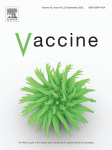Serious Adverse Events of Special Interest Following mRNA Vaccination in Randomized Trials
Introduction: In 2020, prior to COVID-19 vaccine rollout, the Coalition for Epidemic Preparedness Innovations and Brighton Collaboration created a priority list
papers.ssrn.com
Peer reviewed and published link:

Serious adverse events of special interest following mRNA COVID-19 vaccination in randomized trials in adults
In 2020, prior to COVID-19 vaccine rollout, the Brighton Collaboration created a priority list, endorsed by the World Health Organization, of potentia…
Abstract
Introduction: In 2020, prior to COVID-19 vaccine rollout, the Coalition for Epidemic Preparedness Innovations and Brighton Collaboration created a priority list, endorsed by the World Health Organization, of potential adverse events relevant to COVID-19 vaccines. We leveraged the Brighton Collaboration list to evaluate serious adverse events of special interest observed in phase III randomized trials of mRNA COVID-19 vaccines.Methods: Secondary analysis of serious adverse events reported in the placebo-controlled, phase III randomized clinical trials of Pfizer and Moderna mRNA COVID-19 vaccines (NCT04368728 and NCT04470427), focusing analysis on potential adverse events of special interest identified by the Brighton Collaboration.
Results: Pfizer and Moderna mRNA COVID-19 vaccines were associated with an increased risk of serious adverse events of special interest, with an absolute risk increase of 10.1 and 15.1 per 10,000 vaccinated over placebo baselines of 17.6 and 42.2 (95% CI -0.4 to 20.6 and -3.6 to 33.8), respectively. Combined, the mRNA vaccines were associated with an absolute risk increase of serious adverse events of special interest of 12.5 per 10,000 (95% CI 2.1 to 22.9). The excess risk of serious adverse events of special interest surpassed the risk reduction for COVID-19 hospitalization relative to the placebo group in both Pfizer and Moderna trials (2.3 and 6.4 per 10,000 participants, respectively).
Discussion: The excess risk of serious adverse events found in our study points to the need for formal harm-benefit analyses, particularly those that are stratified according to risk of serious COVID-19 outcomes such as hospitalization or death.
==========================================================================
This paper corroborates the below studies:
https://www.scivisionpub.com/pdfs/u...nalyzed-using-the-proper-scientific--1811.pdf
(US COVID-19 Vaccines Proven to Cause More Harm than Good Based on Pivotal Clinical Trial Data Analyzed Using the Proper Scientific Endpoint, “All Cause Severe Morbidity/Mortality”)
This study also found the shots provide negative protection after a few months:
https://www.medrxiv.org/content/10.1101/2021.12.20.21267966v2 (Vaccine effectiveness against SARS-CoV-2 infection with the Omicron or Delta variants following a two-dose or booster BNT162b2 or mRNA-1273 vaccination series: after 3 months the shots provide negative protection, VAIDS)
COVID-19 Vaccine Boosters for Young Adults: A Risk-Benefit Assessment and Five Ethical Arguments against Mandates at Universities
Students at North American universities risk disenrollment due to third dose COVID-19 vaccine mandates. We present a risk-benefit assessment of boosters in this
papers.ssrn.com
Last edited: